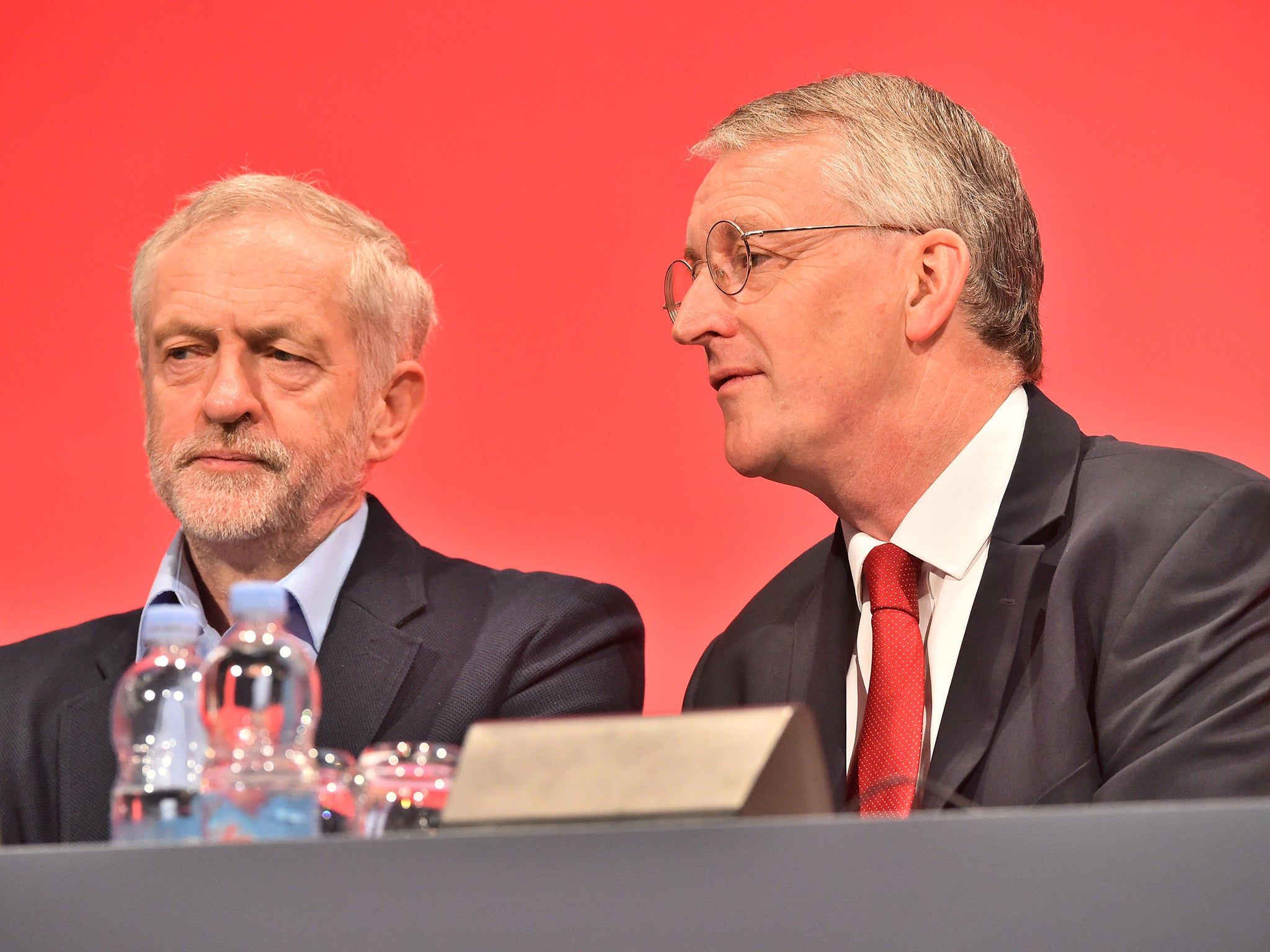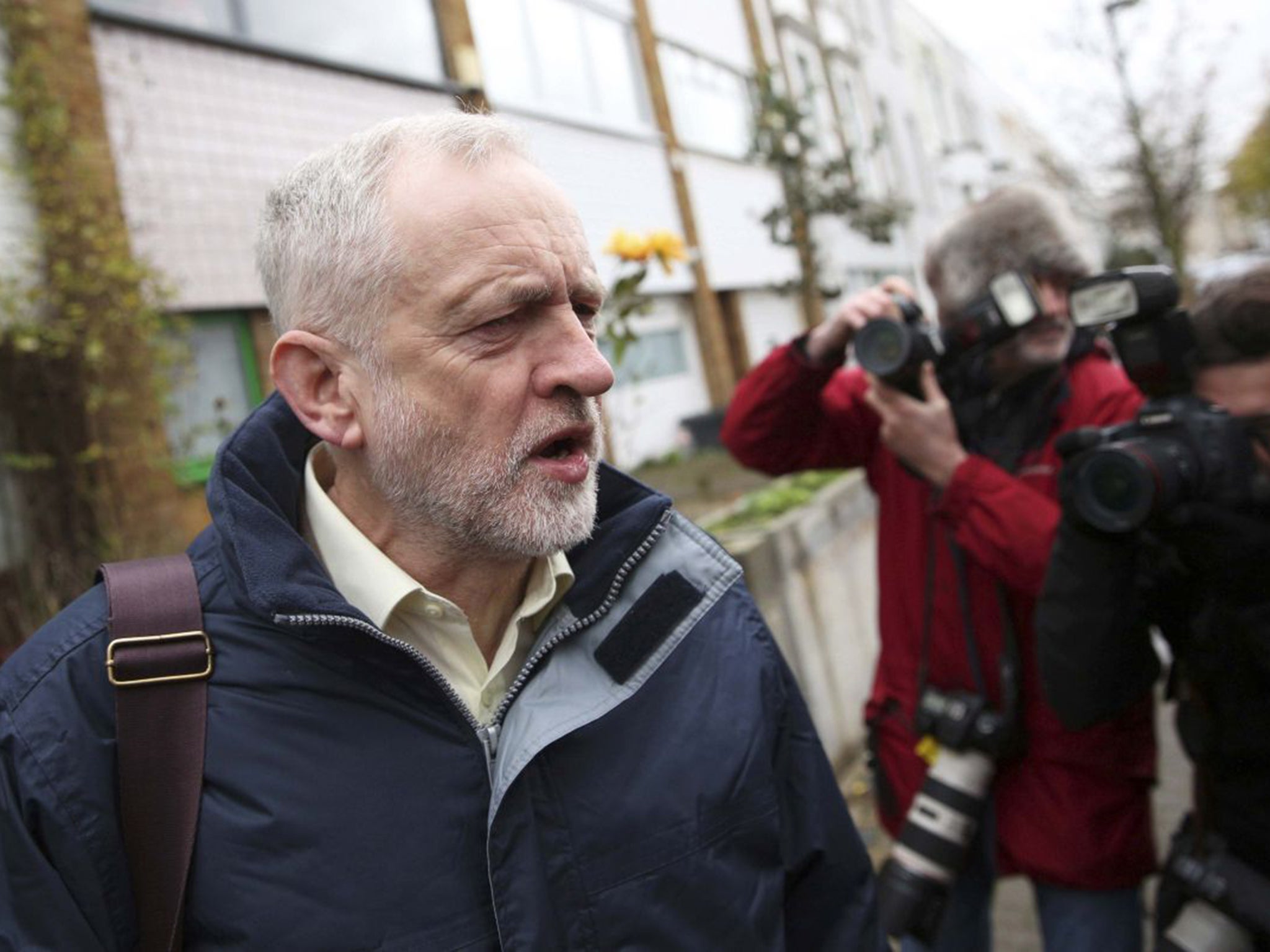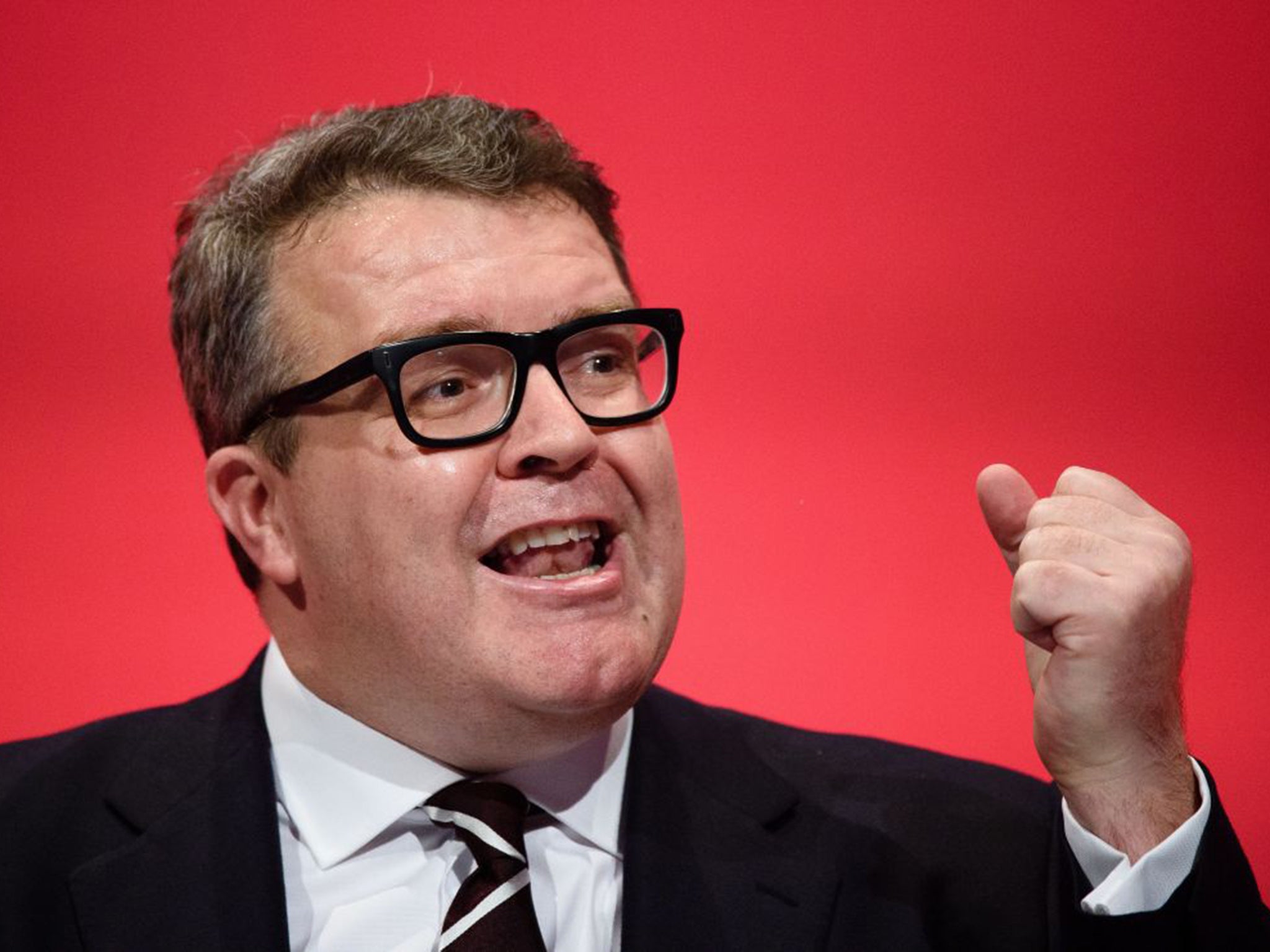Syria air strikes: Jeremy Corbyn set for clash with Hilary Benn on Labour front bench ahead of free vote
MPs to debate air strikes tomorrow as Labour party squabble descends into farce with rancorous shadow cabinet meeting

Your support helps us to tell the story
From reproductive rights to climate change to Big Tech, The Independent is on the ground when the story is developing. Whether it's investigating the financials of Elon Musk's pro-Trump PAC or producing our latest documentary, 'The A Word', which shines a light on the American women fighting for reproductive rights, we know how important it is to parse out the facts from the messaging.
At such a critical moment in US history, we need reporters on the ground. Your donation allows us to keep sending journalists to speak to both sides of the story.
The Independent is trusted by Americans across the entire political spectrum. And unlike many other quality news outlets, we choose not to lock Americans out of our reporting and analysis with paywalls. We believe quality journalism should be available to everyone, paid for by those who can afford it.
Your support makes all the difference.Jeremy Corbyn will publicly clash with his own shadow Foreign Secretary in Parliament as Labour spectacularly failed to heal its rift over whether to oppose British military action in Syria.
Despite Mr Corbyn's own anti-intervention stance, Labour MPs will be given a free vote on Wednesday, which, if passed, would effectively give the go-ahead for bombing within hours.
At a fractious and at times hostile meeting of Labour’s Shadow Cabinet, Mr Corbyn was accused by his shadow Home Secretary Andy Burnham of trying to “throw MPs to the wolves” of left-wing activists in an attempt to force them to vote against air strikes.
Hilary Benn, the shadow Foreign Secretary, then warned Mr Corbyn that he would “speak from the back benches” if he was banned from siding with David Cameron’s plan for military intervention during the Commons debate.
Other shadow cabinet members accused Mr Corbyn of “deplorable” behaviour and a “lack of respect” after they discovered Mr Corbyn’s aides briefed a journalist about the outcome of the meeting before it had even begun.
A majority of the Shadow Cabinet then said they “would not leave the room” until the Labour leader dropped the leaked proposal that was due to change party policy to officially oppose military action. One observer said that at times the two-hour meeting descended into a “shouting match”.

As a result of the meeting Labour’s policy will remain vague and the party’s MPs will be given a free vote in a one-day debate on air strikes, which will take place on Wednesday. Mr Corbyn was critical of David Cameron for turning down his request for a two-day debate. “By refusing a full two-day debate, David Cameron is demonstrating he knows the debate is running away from him. The Prime Minister should stop the rush to war to allow for a full discussion of the issues in Parliament,” he said.
Mr Corbyn will open the debate for Labour opposing the plan while Mr Benn, who will sit alongside him, will set out the case in favour.
Mr Corbyn’s spokesman admitted that the arrangement was “certainly unusual” but denied it was “shambolic”. He insisted that Mr Corbyn’s stance reflected official party policy.
This, though, was rejected by the Labour leader’s opponents, who accused the Corbyn camp of attempting to fix a meeting of Labour’s ruling National Executive Committee at the weekend to change Labour’s policy.
It was only when this failed, they claimed, that Mr Corbyn was forced to concede a free vote. Labour’s policy is currently that it would only support air strikes if certain pre-conditions are met, including UN authorisation.
Mr Benn, Labour’s deputy leader, Tom Watson, and other senior shadow cabinet members believe that those conditions have now been broadly met following a UN Security Council resolution earlier this month that called for countries to take “all necessary measures” to defeat Isis.
However, Mr Corbyn and his supporters, including the shadow Chancellor, John McDonnell, and Diane Abbott, say this does not amount to authorisation for air strikes and therefore Labour’s policy should be to oppose them.
In a statement following the Labour decision, Mr Cameron announced that he would be calling for a Commons vote on air strikes. “I will be recommending to the Cabinet that there be a debate and vote in the House of Commons on a motion to participate in coalition air strikes against Isil [Isis] in Syria,” he said.
“Isil poses a very direct threat to the United Kingdom. British air strikes can play a key role in degrading them (as) part of a comprehensive strategy for Syria.”
Mr Corbyn’s supporters claim that only around 30 to 40 Labour MPs will vote in favour of air strikes but those in favour believe that number is likely to be at least 50. Mr Cameron is also expecting rebels on the Conservative side but after a ring-round by Tory whips they expect the motion to pass with the “clear majority” which the Prime Minister claimed he needed before going ahead.
The Scottish National Party are expected to oppose the plan but Mr Cameron will have the backing of the DUP and possibly the Liberal Democrats.

While Labour MPs are relieved to be given a free vote, some are worried that if they defy the leadership they will be targeted for de-selection by Labour activists. Many were angry at attempts by Mr Corbyn’s supporters to influence the debate over the weekend – by asking members to directly lobby against air strikes.
At a meeting of all Labour MPs, Mr Corbyn was subjected to what one observer described as a “ferocious” attack on his leadership over the Syria issue. A poll of Labour members, commissioned by the leader’s office, claimed that 75 per cent of 64,771 who responded opposed air strikes. But it was later alleged that only a very small sample of the responses had actually been counted.
Labour MP John Woodcock, who is in favour of air strikes, said the poll was “completely not credible”. “I just imagine what Jeremy Corbyn and Diane Abbott and John McDonnell would have had to say if a past Labour leader had deployed those kind of tactics one hour before a very important meeting of the Cabinet before military intervention,” he said.
He questioned whether the vote would be genuinely free, with “certain people floating around the edges and warning of the dire consequences to their political future if they vote in the way that they believe to be right, which just happens to be in disagreement with the leadership”.
Pete Willsman, a constituency party representative on Labour’s ruling National Executive Committee, said Mr Corbyn should impose a three-line whip and be “tougher” on MPs who back military action. “They are not there to vote with the Tories. They are there to vote with Labour and follow the Labour conference policy,” he told BBC Radio 4’s World at One.
He added: “Who do these people think they are? It’s just amazing, they are speaking to the press all the time, they are totally disloyal.”
Milifan turns fire on Corbynfandom critics
It started with the teenage founder of the “Milifandom” movement offering some thoughts on how Ed’s successor Jeremy Corbyn was viewed by voters in the Oldham West by-election. It ended with Abby Tomlinson facing social media criticism from sections of the “Corbynfandom” movement – and telling her ruder critics to “piss off”.
Ms Tomlinson, 17, who before the general election turned Mr Miliband into something of a pin-up, had tweeted her assessment of canvassing in Oldham: “The people who used to vote for us but won’t do [now] say it’s because of Corbyn.” Corbyn supporters responded to the student, who backed Andy Burnham in the Labour leadership contest, with varying degrees of politeness. Ms Tomlinson was called a “12-year-old aspiring spad” and told to “give up and join the Tories”.
In response, Ms Tomlinson pointed out that, unlike most of her critics, she was out on the doorstep trying to build support for Mr Corbyn. And then she tweeted: “Piss off, all of you just piss off. I spend my free time trying to win people over to Jeremy, and all you can do is have a go?”
Adam Lusher
Mixed messages: How meeting unfolded
2.00pm: Labour’s Shadow Cabinet meets to decide collective party policy on air strikes against Isis in Syria.
2.05pm: Following private briefing from Jeremy Corbyn’s team, reports emerge in media that Mr Corbyn is to offer a free vote to MPs on David Cameron’s proposals but will make it clear that official Labour policy is to oppose air strikes. These reports are raised in the meeting by Shadow Cabinet ministers who have read it on their phones, leading to an angry confrontation between Mr Corbyn and his shadow Home Secretary Andy Burnham and Hilary Benn the shadow Foreign Secretary. Mr Burnham warns that changing Labour policy is “unacceptable” and will throw MPs who oppose Mr Corybn to the “wolves” of anti-war party activists.
4.00pm: After two hours of talks which one observer said turned into a “bit of a shouting match”, the meeting breaks up. Mr Corbyn’s spokesman emerges to say MPs will be given a free vote but Labour’s policy on air strikes will not be changed – contrary to previous briefings.
Join our commenting forum
Join thought-provoking conversations, follow other Independent readers and see their replies
Comments